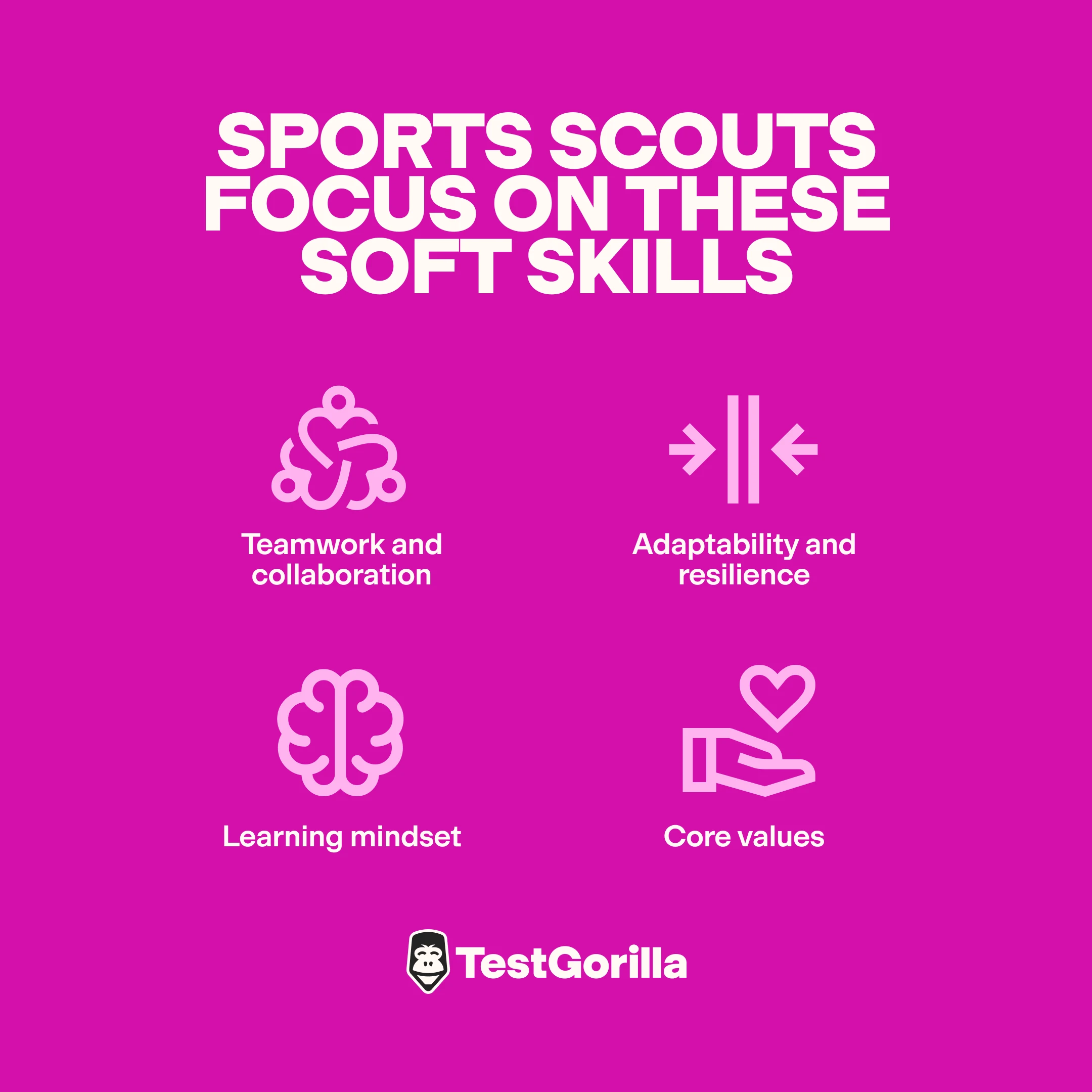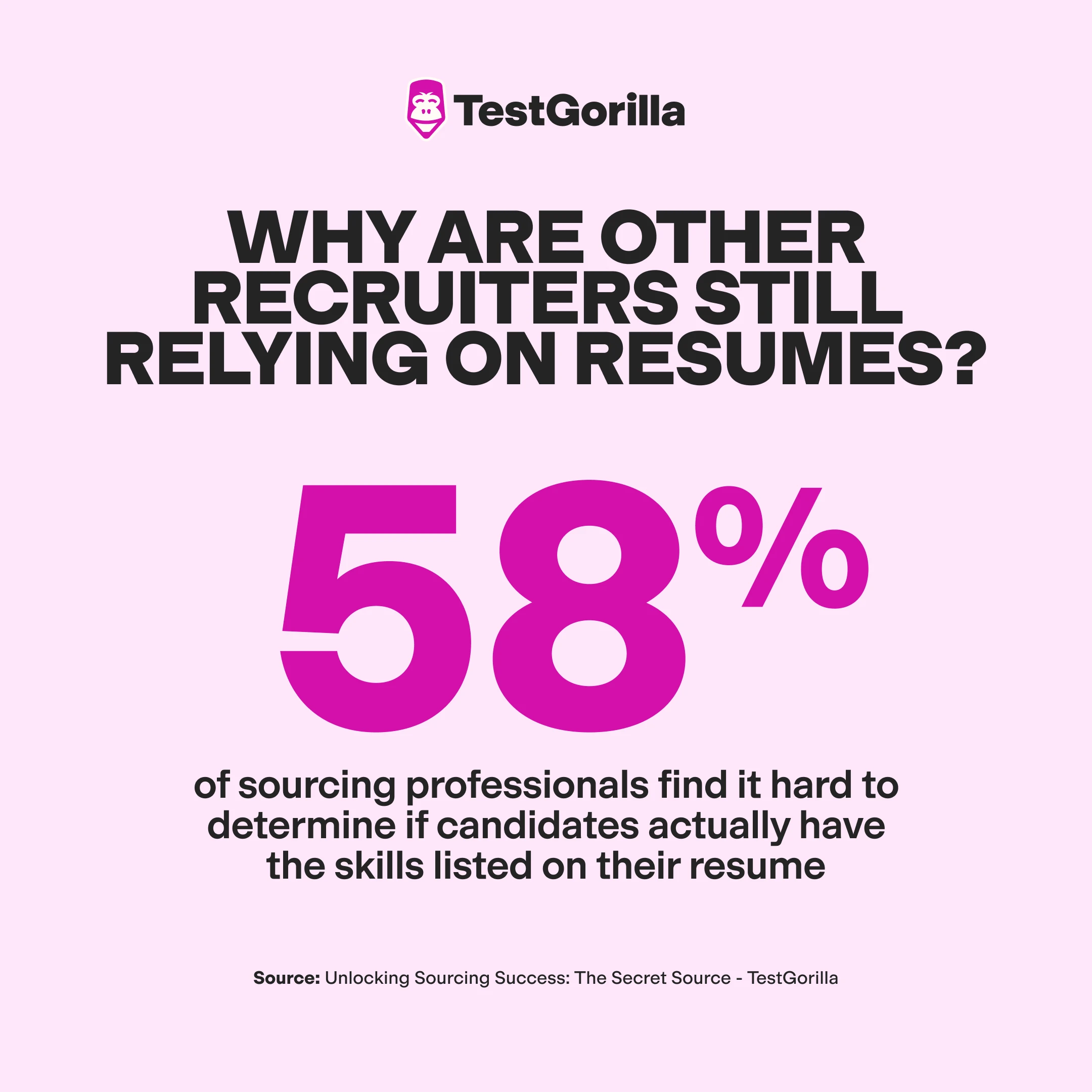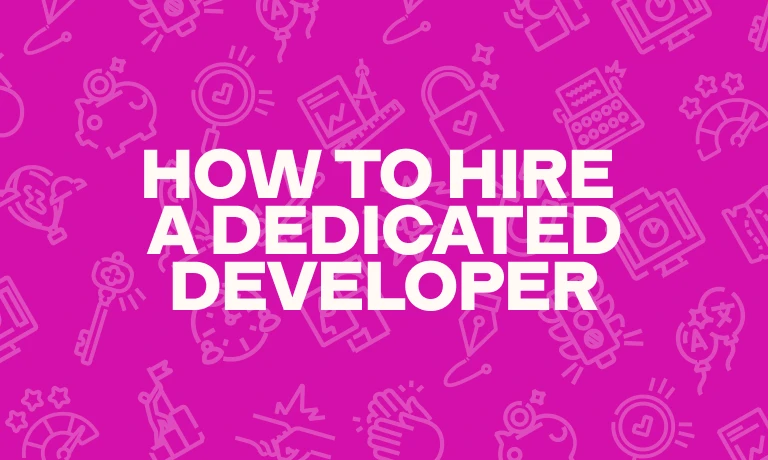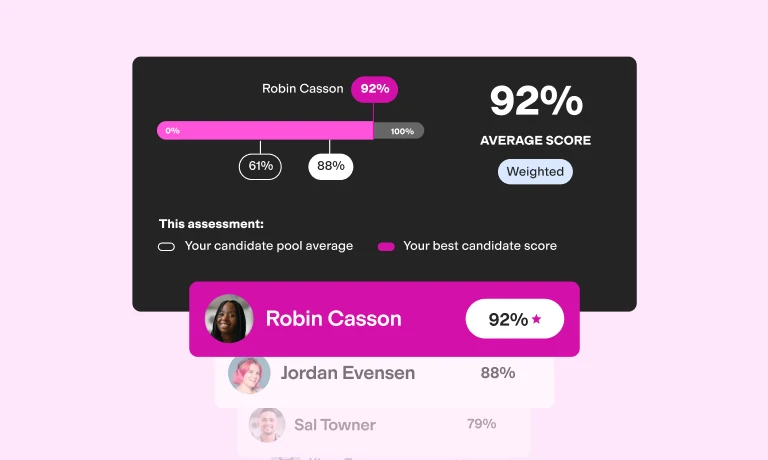We recently surveyed more than 1,000 sourcing professionals in the US, and 43% said one of their biggest challenges was a lack of skilled talent in the market. Yet, in another one of our recent studies, seven in ten job seekers said they’re struggling to find jobs.
We figured something’s not adding up – if both sides are looking, there must be a problem with how we’re trying to find talent.
So, we turned to experts who’ve aced sourcing top talent: sports scouts and leaders. They don't wait around for good talent to show up. They spot raw ability, skill, and potential long before anyone else, and strike when the iron is hot to secure the cream of the crop.
Below, I uncover the when, where, what, why, and how of talent sourcing in sports and discuss why it’s time the rest of us take a page from their playbook.
Table of contents
- The “when” of sports sourcing: Talent pipelines start early
- The “where” of sports sourcing: Scouts go beyond traditional sources
- The “what” in sports sourcing: Scouts look beyond stats and averages
- The “why” in sports sourcing: Scouts know that context matters
- The “how” of sports sourcing: Scouts pick vetting over betting
- Wrapping up: Scoop up the best talent like a scout
- Contributors
The “when” of sports sourcing: Talent pipelines start early
In sports, scouts attend local games, track promising school and college athletes, monitor stats, and build relationships with top talent and their coaches long before a player is even eligible for an offer. They don’t wait for an opening on the team.
Take baseball, for instance. Major League scouts follow teenage players for several seasons before the draft. In sports like Formula 1 racing, teams keep an eye on budding talent in karting circuits from very early years and even bring them into development programs.
This happens even at more advanced levels – for instance, in pro soccer, scouts already know important details about the professional athletes they want to recruit and monitor, from their performance to the expiration dates of their existing contracts and developments within rival teams. This way, they’re first in line when a player is ready to move to a different club.
Essentially, proactive sourcing and good timing are everything. You must start sourcing top candidates well in advance and move quickly when it’s go time. This way, you can match the right candidate to the right job and make thoughtful offers instead of scrambling to fill roles.
Other industries share this logic, too. Our research indicates that 77% of sourcing professionals consider active sourcing either essential (29%) or very important (48%) to their talent acquisition strategy. In reality, however, 73% didn’t actively source even half of their hires last year.
Why the gap? Forty-three percent of them said it's because they struggle with a lack of skilled talent in the market.
My opinion? Maybe they're not looking in the right places.
The “where” of sports sourcing: Scouts go beyond traditional sources
Scouts still look for talent in traditional places like school tournaments, college leagues, and local competitions. But they also:
Cast their nets much wider – spotting hidden gems in local leagues, street games, and community programs. For example, San Francisco 49ers running back Jordan Mason was discovered by a scout just four days before the 2022 NFL draft – a last-minute find who went on to earn a spot on the team despite being undrafted.
Recruit from other locations. A recent study of Portuguese football scouting showed that some mid-sized clubs landed exceptional talent and strong returns on investment (ROI) by targeting players outside their usual geography.
Make the most of ready data by looking at online performance databases that track stats, players, and teams worldwide – for instance, Transfermarkt for football (soccer) or Synergy Sports for basketball.
You can apply the same to sourcing in other sectors by widening your horizons. Over-relying on traditional tools isn’t the way to go.
Our research shows that almost 50% of sourcing professionals rely on the most common tools, like LinkedIn Recruiter or social media, to find active and passive candidates. But 46% say these tools are only “somewhat” or “not at all effective” for their purposes.
LinkedIn Recruiter, for instance, underwhelmed 52% of its users. Meanwhile, another so-called gold standard sourcing method – referral programs – also scored poorly.
Instead of over-relying on such tools, explore niche communities, like GitHub for developers or Dribbble for designers, or alternative networks, such as industry-specific forums, and expand into new regions.
Kira Byrd, Chief Accountant and Compliance Strategist at Curl Centric, has found success with these methods. “I’ve returned to conventional sourcing strategies. Developer platforms such as GitHub, industry-specific forums, and direct access through email or referral have been more effective.”
Finally, just like scouts, you can also access ready databases of skilled talent. TestGorilla’s sourcing platform, for instance, gives you access to more than two million skills-tested candidates worldwide, including remote talent who you can tap into from anywhere.
The best insights on HR and recruitment, delivered to your inbox.
Biweekly updates. No spam. Unsubscribe any time.
The “what” in sports sourcing: Scouts look beyond stats and averages
Everyone knows that scouts track players’ stats and credentials – goals scored, success rates, average speed, passes completed, and more – to gauge hard skills. These numbers are often what get a player noticed in the first place.
But every expert we spoke to said that this data only paints part of the picture. Instead, they give more weight to soft skills, personality traits, and values.
Other industries should take note of this approach, especially since, earlier this year, the World Economic Forum published that 39% of jobs across industries will change or become obsolete in the next five years. Transferable qualities like resilience, creativity, and willingness to learn are becoming just as, if not more, important than hard skills.
Let’s have a look at what qualities matter most to sports scouts, and why they’re just as essential in other sectors.
Teamwork and collaboration
A player might have all the physical talent and stamina in the world, but if they can’t connect with their team members, the game suffers. For scouts, the real MVPs are those who inspire others, understand their team’s body language, and put the team above themselves, even if they’re not leaders or captains.
James Adams, Director of Athletics and Head Men’s Basketball Coach at St. Elizabeth University, shares a compelling story about the importance of team spirit over stats.
“We had one particular player on our championship team who did not stand out statistically...On paper, he might not have caught your attention. But when I saw him play, his impact was undeniable. He brought energy and positivity to every single possession. He motivated his teammates when they were struggling, celebrated their wins, and created an atmosphere that made everyone around him better.”
Adams goes on to say that this individual's “personality and presence lifted the entire team even though his contributions were not always measurable in points or rebounds.”
The same principle applies in other fields, according to Krissy Webb, Co-founder at Student ACES (Athletics, Community, Education, and Service) – a nonprofit focused on developing soft skills and leadership abilities in student athletes.
“Stats can’t measure heart and character…what defines a champion is how they respond to challenges and lift those around them. That’s who you want on your team in sports or business.”
It makes sense. Yes, you should hire top performers. But you also need to prioritize collaborators who can motivate, support, and elevate others – whether they’re “leaders” or not.
Adaptability and resilience
Sportspersons deal with challenges throughout their games and careers – they may get injured, defeated, benched, and more. That’s why scouts look for those who can thrive in change, take feedback constructively, pivot strategies, and stay focused when the going gets tough.
Jess Heiss, Head Coach at EverWild Performance, admits, “For me, it often comes down to mindset and adaptability – someone who’s willing to learn and bounce back from setbacks will go further than someone with just raw numbers.”
Adams seems to resonate. “When you have athletes who are flexible, who focus on the overall result rather than their own role, the team can handle adversity and change much more effectively.”
Just like sports, businesses are also subject to constant uncertainty, like economic shifts, new technologies, and evolving customer preferences. You must source candidates who can adapt, learn, and innovate in tough times, rather than those who’ll crumble under pressure.
Ryan McEachron, CEO of ISU Insurance Services at ARMAC Agency, shares how he applies these lessons in insurance sourcing.
“When we're building our preferred contractor network, I don’t just look at licenses and insurance coverage. I dig into their project documentation habits and response times, because these predict performance under pressure better than credentials. It’s like scouts watching how a player reacts to bad calls rather than just their highlight reel.”
Learning mindset
Sourcers in sports prioritize talent who are open to coaching, learn from their mistakes, and refine their technique to stay competitive. We asked James Rodgers, Endurance Sports Expert and UESCA Certified Running Coach, what qualities he looks for in top talent. He emphasizes both resilience and “having a learning mindset.”
Rodgers says he also pays close attention to “how athletes describe overcoming a significant challenge or setback,” and wants to know things like, “What happened? How did you work through it? What did you learn that you'd apply differently next time?”
This can hold true in other industries, too. Employees who are willing to learn don’t stall when they hit a wall. They reflect, upskill or reskill, and keep adding value. This is so important in a world where everything is shifting so quickly. Sourcing for this kind of growth mindset can keep you competitive in the long run – no matter the circumstances.
Core values
An athlete or player’s values, such as fair play and sportsmanship, are critical to a team’s internal culture and external reputation.
In a recent interview, Brett Veach, an NFL executive and general manager of the Kansas City Chiefs, was asked about what intangibles and characteristics he looks for in players.
“The player and the values, that’s a part of the make-up, the versatility, the character, the work ethic. That all incapsulates what we feel about this player,” he says.
Krissy also believes values like “integrity, adaptability, and a willingness to never settle” make candidates stand out in sports and other business sectors. “Companies should look for candidates who demonstrate a positive mindset, encourage others, and consistently honor their word.”
The “why” in sports sourcing: Scouts know that context matters
There are two types of “contexts” that show up in sourcing or hiring.
The past
The best scouts don’t judge players by the prestige of previous clubs, because let’s face it – no one wants a sh*t player from a good club. They look at the why – the reasons certain players haven't had an outstanding track record yet, what they've overcome, and how they've grown.
Here’s what Rodgers says about this.
“When evaluating athletes, I don't just focus on personal bests or competition results, but rather look at their journey. For instance, an athlete who's been predominantly self-coached might show 'average' times, but they've developed exceptional drive and problem solving skills. Put them in a structured environment with proper coaching, and that 'average' performer can rapidly improve.”
Unfortunately, for too long now, old-school recruiters and sourcers have paid extra attention to candidates’ backgrounds – but not in the right way. They gush over prestigious employers, Ivy League degrees, and fancy job titles. In reality, these factors are poor predictors of job performance and shut out talented people who may not have access to elite colleges or powerful networks. Such people may have had just as much skill potential (if not more).
When you look at context with a sports scouting lens, you're much more likely to focus on what someone is capable of.
The future
While a player’s past doesn’t define them, the context they’re being placed into does define success. “We want individuals who mesh with the culture of the team.” Adams shares.
Scouts think about why someone will integrate well into the culture of their club or team. Do they share the team's goals, values, and practices? Ultimately, their performance also depends on the team's style of play, not just individual skill.
Culture is important in other sectors, too – people perform best when they feel aligned with their workplace’s values and environment – but finding culture matches has proven hard for candidates and recruiting professionals.
In our research, 52% of job seekers told us they had all the right technical skills in a new job, but later found that they didn’t vibe with the culture. And nearly half of sourcing professionals reported struggling to identify candidates who matched their company’s culture.
So while the importance of culture is understood in theory, sourcers need some practical tips on how to find candidates with the right hard and soft skills, attributes and values, and cultural alignment. Let's look at how scouts do this in sports.
The “how” of sports sourcing: Scouts pick vetting over betting
Scouts never bet on paper credentials alone. They vet candidates before adding them to the pipeline.
Sports sourcers spend hours watching games and training sessions for passive talent or even conducting trials for active candidates to see players’ skills and style. Adams tells us that he often looks for the small moments:
“How hard are they playing? Are they doing the little things that contribute to winning but may never show up on a stat sheet? That might mean diving for a loose ball, encouraging a teammate during a tough moment, or making a smart pass that sets someone else up for success. Those small actions tell us a lot about character and commitment.”
Additionally, sports AI tools like aiScout can analyze footage of gameplay, determine athletes’ strengths and weaknesses, create automated highlight reels, and use insights to forecast future potential, taking away much of the manual hours scouts historically spend attending and assessing live games.
So, why are other recruiters still relying on resumes? The resume has been the default screening tool for ages, despite being aware of its unreliability.
We found that 58% of sourcing professionals find it hard to determine if candidates actually have the skills listed on their resume. And these fears aren’t unfounded. Forbes found that seven in ten candidates admit to lying on their resumes.
Unlike scouts, you can’t watch candidates in action in their previous jobs or run AI videos of their performances. But there are other ways to verify skills like scouts do:
Multi-measure testing can help you evaluate everything from candidates’ hard, soft, and cognitive skills to their personality traits, motivation levels, and cultural alignment. We found that two in three employers that use skills tests report fewer mis-hires.
Since it’s not practical to ask passive candidates to take online tests when they haven’t even applied for a role in your company, you can use our sourcing tool to access a talent pool of more than two million diverse candidates who’ve been assessed and verified. Filter them by skill, location, salary, and more. AI can match you with candidates who’d be a great fit.
Wrapping up: Scoop up the best talent like a scout
In the end, there’s much to be learned from sports. Good sourcing doesn't equal filling a seat when a role opens. You must always keep your eyes wide open to spot top candidates (even in unconventional places), build and nurture your talent pool well in advance, ensure you factor soft skills and cultural compatibility into your decisions, and move fast when opportunity strikes.
Contributors
David Torosyan, J&Y Law, Human Resources Manager
James Adams, St. Elizabeth University, Director of Athletics and Head Men’s Basketball Coach
James Rodgers, Endurance Sports Expert and UESCA Certified Running Coach
Jess Heiss, EverWild Performance, Head Coach
Kira Byrd, Curl Centric, Chief Accountant and Compliance Strategist
Krissy Webb, Student ACES, Co-founder
Ryan McEachron, ARMAC Agency, CEO of ISU Insurance Services
You've scrolled this far
Why not try TestGorilla for free, and see what happens when you put skills first.




















